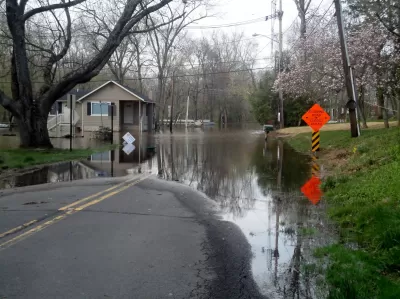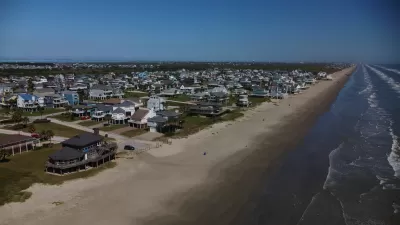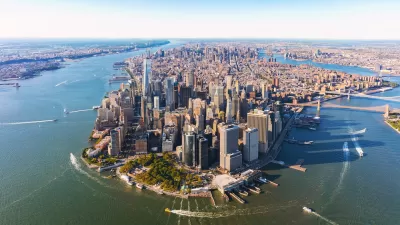Climate change-fueled sea-level rise could cause a housing crisis of a new sort if the federal government doesn't reconsider valuation policies.

In their recent opinion piece, Katie Oran and Yuliya Panfil describe what they predict to be the effect of climate change on the future of housing in the United States. Oran and Panfil warn of a new kind of housing crisis, destroying home values and potential causing a major housing market crash, caused by neglecting to consider sea-level rise.
According to a report from First Street Foundation, federal flood maps don't account for 67% of homes at risk of flooding. Readers can use the organization's Flood Factor tool to determine current and future flood risk by address.
Oran and Panfil account for the damager caused by flooding in monetary terms:
Between 1980 and 2019, the cost of storm damage in the United States has totaled $1.75 trillion. That is $300 billion more than the estimated total value of all property that sits within 700 feet of the US coastline. To put it simply: the US Government and private insurance companies have spent more money rebuilding damaged coastal property than it would have cost to relocate every single home within this risky zone.
Risky mortgages are re-packaged and sold to such government-secured enterprises as Fannie Mae and Freddie Mac. Oran and Panfil call to stop insatiable subsidization and for a government response that acts to consider the climate change risk in valuation and incentivize relocation and buy-out packages in a process of managed retreat.
"The key, however, is for the government to listen to the science and act now to prevent Americans from being swept up in another housing crisis, this time caused by climate change," opine Oran and Panfil.
FULL STORY: Climate change is threatening to create a new housing crisis in America

Manufactured Crisis: Losing the Nation’s Largest Source of Unsubsidized Affordable Housing
Manufactured housing communities have long been an affordable housing option for millions of people living in the U.S., but that affordability is disappearing rapidly. How did we get here?

Americans May Be Stuck — But Why?
Americans are moving a lot less than they once did, and that is a problem. While Yoni Applebaum, in his highly-publicized article Stuck, gets the reasons badly wrong, it's still important to ask: why are we moving so much less than before?

Using Old Oil and Gas Wells for Green Energy Storage
Penn State researchers have found that repurposing abandoned oil and gas wells for geothermal-assisted compressed-air energy storage can boost efficiency, reduce environmental risks, and support clean energy and job transitions.

Minneapolis Bans Rent-Setting Software
Four cities have enacted restrictions on algorithmic software that can inflate rent costs.

Oakland to Add 244 New EV Chargers
Oakland plans to launch its new charging network at eight locations by the end of 2025.

Jane Goodall Inspires with Message of Hope, Resilience, and Environmental Action
Speaking in Pasadena, Jane Goodall offered a hopeful and inspirational message, urging global compassion, environmental responsibility, and the power of individual action to shape a better future.
Urban Design for Planners 1: Software Tools
This six-course series explores essential urban design concepts using open source software and equips planners with the tools they need to participate fully in the urban design process.
Planning for Universal Design
Learn the tools for implementing Universal Design in planning regulations.
Heyer Gruel & Associates PA
City of Moreno Valley
Institute for Housing and Urban Development Studies (IHS)
City of Grandview
Harvard GSD Executive Education
Salt Lake City
NYU Wagner Graduate School of Public Service
City of Cambridge, Maryland





























